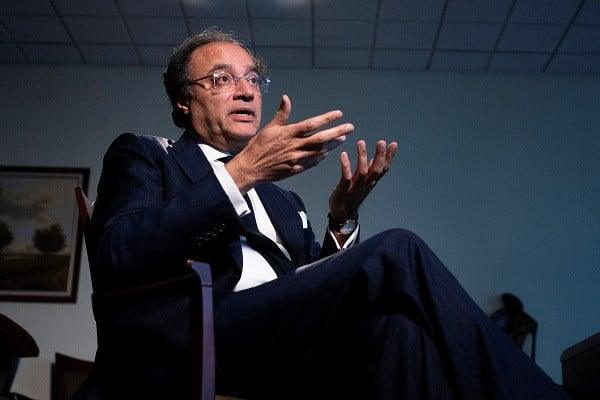The Minister of Finance, Mohammad Aurangzeb, said on Monday that the country had reached a central moment in economic recovery and transformation, while inviting investors to join the growth course of Pakistan.
Speaking at the Pakistani conference 2025 at Harvard University, Aurangzeb described key achievements, including historic inflation reductions, an increase in foreign reserves and a rebound in foreign direct investment.
“After inheriting an economy faced with important challenges – from contractual GDP to reservations – we have stabilized fundamental principles, restored confidence and revived growth,” he said.
The conference, organized by Harvard students with the support of university research centers, is the biggest event led by students in Pakistan in the United States.
Aurangzeb stressed that inflation had dropped to 0.7%, the lowest in 60 years, foreign reserves had doubled and the currency appreciated by 3%. Pakistan recorded a current account surplus exceeding $ 1 billion in March 2025, he added.
The Minister also cited a 44% increase in foreign direct investments, 24% growth in IT exports and Record Projects funds at 38 billion dollars for 2025. Pakistan carried out a financial surplus for the first time in 24 years and has obtained an upgrade of the sovereign credit note of Fitch to B- with a stable perspective.
Aurangzeb stressed that stability was only a springboard, describing government plans for tax discipline, structural energy reforms, taxation, governance and management of public enterprises.
He underlined the main growth opportunities in the mineral resources of Pakistan, the IT sector, green energy projects and its young entrepreneurial population.
In debt management, Aurangzeb said that Pakistan has reduced its public debt / GDP ratio by 75% to 67.2%, aimed at reducing it below 60% in the medium term thanks to budgetary reforms and improving interior funding.
Efforts to privatize state of losses could save up to 2% of GDP each year, he added, stressing the importance of transparency and competitiveness in the process.
Aurangzeb has also described initiatives to deepen the financial markets, expand the digital bank and promote green finances, while reaffirming Pakistan’s commitment to climate resilience thanks to partnerships with the IMF and the World Bank.
“The future of Pakistan will be shaped by daring and necessary choices,” concluded Aurangzeb. “By investing in our people, modernizing our economy and committing us to reform, Pakistan will emerge stronger, greener and more competitive.”




